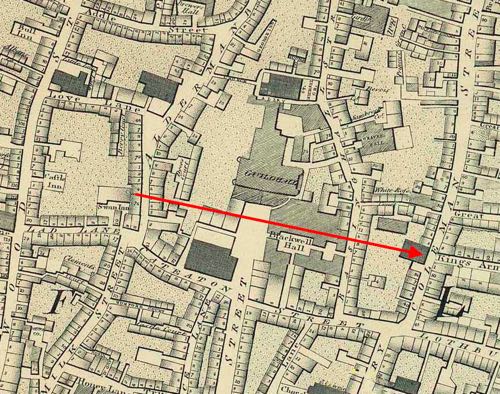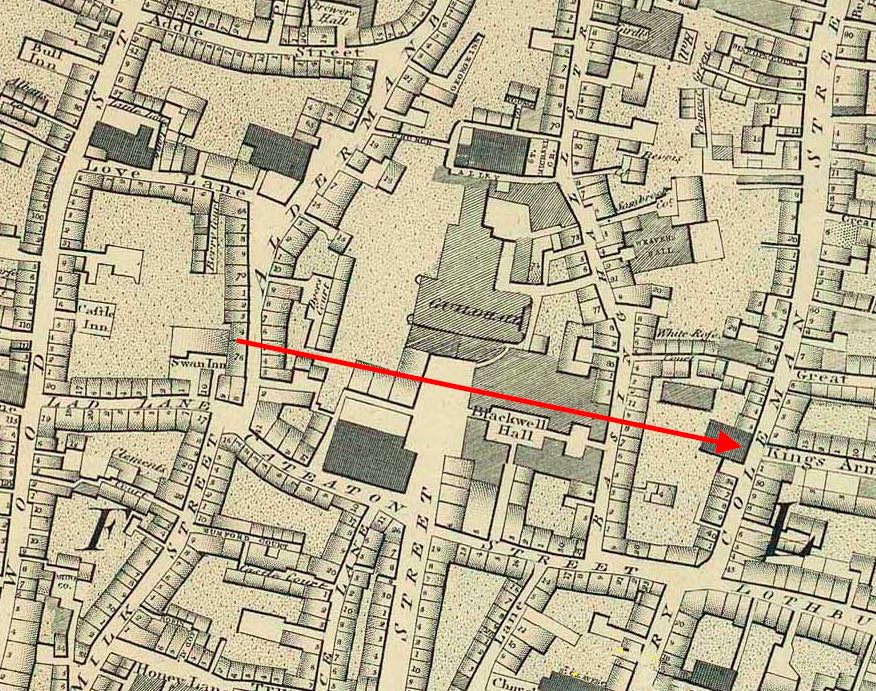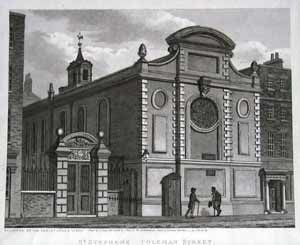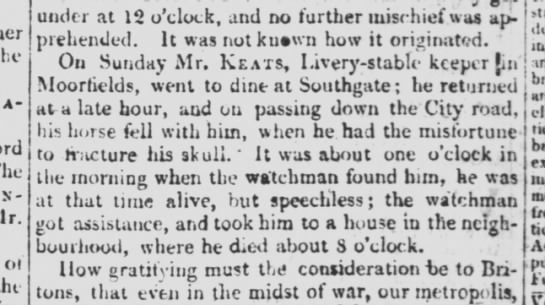23 April 1804: The Funeral of Keats’s Father
St. Stephen’s Church,* Coleman Street, London


Where Keats’s father, Thomas Keats, has his funeral, 23 April 1804, after suffering a head injury in a riding accident along City Road and close to Bunhill Fields, 15 April. He had been visiting his sons at Enfield School. Keats is eight years old. He is buried at St. Stephen’s.*

The death of his father complicates Keats’s family life: in just over two months his mother remarries quickly and unsuccessfully (to a dubious minor-league fortune hunter, it seems). The Keats children go to live with their maternal grandparents in Ponders End, Enfield, to whom they become quite attached; their mother joins them after a few difficult years. St. Stephen’s is demolished in 1940.

*A note on the church: St. Stephen’s was bombed and destroyed by German forces in
late 1940.
From 1959-1961, the remains of those buried at St. Stephen’s were exhumed and reburied
in at
Brookwood Cemetery in Woking (also known as the London Necropolis; the cemetery dates
from the
1849). This process of relocation (which over time includes thousands of bodies from
numerous
London churchyards) would have included reburial of the remains of most of Keats’s
closest
relatives: his mother and father (Thomas and Frances), his maternal grandparents (John
and
Alice Jennings), and his younger brother, Tom. Today, their graves remain unremarked.
Full
thanks to Julie Bozza for tracking all this down (main via the London Metropolitan
Archives),
and for establishing that those reburials are located on the south side on Plot 70,
St Agnes
Avenue, behind what is now known as Beard Constructions; Plot 70 remains unmarked
and
overgrown. That the avenue is called St Agnes
is, from a
Keatsian perspective, somehow appropriate: picture the unknown fate of two young lovers
riding
into the darkness . . .

